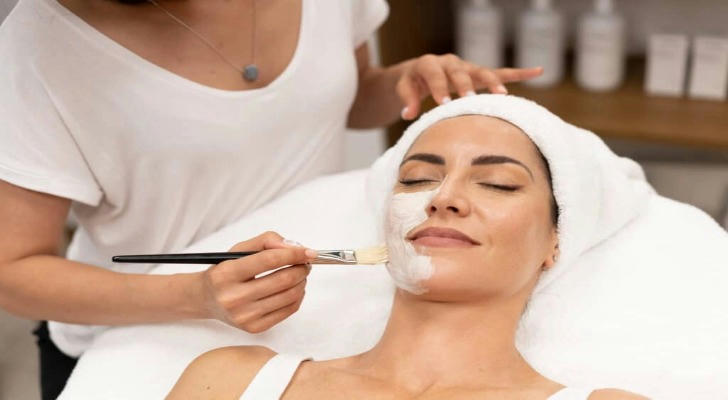Can sensitive skin be used for medical aesthetics? A complete analysis of the key points of preoperative and postoperative care
With the rapid development of the medical aesthetics industry, more and more people choose to use medical aesthetics to improve skin quality, delay aging, or achieve more delicate facial features. However, for people with "sensitive skin", facing injections, lasers and other projects, they always have concerns: **Can my skin withstand it? Will it become more and more fragile? **
This article will explore in depth whether sensitive skin is suitable for medical aesthetics projects, how to do a good job of preoperative and postoperative care, and some real cases to help you make rational judgments and scientific decisions. 💡

1. What is "sensitive skin"? Do you really understand your skin? 🔬
Sensitive skin is not a clear medical name for a disease, but a skin condition that reacts strongly to external stimuli. Typical symptoms include:
Redness, stinging, and itching
Obvious reaction to skin care ingredients
Allergic symptoms when exposed to hot and cold winds and ultraviolet rays
Damaged skin barrier and thin stratum corneum
If you always change skin care products frequently or your skin breaks out and becomes inflamed when the season changes, then you may have sensitive skin. And this type of people do need to be more cautious when undergoing medical beauty treatments.
2. Can sensitive skin undergo medical beauty treatments? 📍
The answer is: **Yes, but it needs to be scientifically selected and tailored. **
Not all medical beauty treatments are "unfriendly" to sensitive skin. In fact, some mild treatments, such as LED light therapy, needle-free water light, mild fruit acid peel, etc., are actually helpful for skin repair and calming. But for high-energy, high-irritation treatments, such as high-concentration fruit acid peels, intense pulsed light (IPL), Thermage, and powerful radiofrequency, you need to be extra cautious.
🧪The key lies in three points:
Clearly diagnose the skin condition (preferably evaluated by a dermatologist)
Choose a low-irritation, low-concentration, segmented course of treatment
Control the frequency to ensure that there is a sufficient repair period between each treatment
3. Preoperative preparation: What should sensitive skin pay attention to? 🔍
Preoperative preparation can be said to be a key step that affects efficacy and safety. For sensitive skin, the following suggestions are essential:
1. Stop using highly active skin care products 2 weeks in advance
Products containing ingredients such as** salicylic acid, A acid, fruit acid, retinol, and high concentrations of niacinamide** will increase skin irritation, and it is recommended to temporarily stop using them.
2. Moisturize and protect against the sun 🌞
Stabilizing the skin condition is the top priority. Before surgery, you should strengthen moisturizing and choose alcohol-free, fragrance-free, and weakly acidic skin care products. At the same time, sun protection should be in place to prevent the skin from becoming more fragile due to ultraviolet rays.
3. Consult a professional doctor
Before choosing any project, a face-to-face evaluation is the key. The doctor will recommend a suitable treatment plan based on the skin condition.
4. Postoperative care: more important than the treatment itself 💆♀️
Sensitive skin is more likely to experience redness, desquamation, and even allergic reactions after surgery, so postoperative care must be treated with caution, and it is important not to "forget the pain after the scar is healed."
1. Gentle cleansing 🧼
Use amino acid or soap-free cleansing products, and avoid using exfoliating, scrubbing, and soap-containing facial cleansers.
2. Strengthen repair
Choose repair skin care products containing Centella asiatica, ceramide, panthenol, oat extract and other ingredients within 2-3 days after surgery.
3. Strict sun protection ☀️
Avoid prolonged exposure to the sun for at least one week after surgery, and choose physical sunscreen or sunscreen above SPF30.
4. Do not rub hard and avoid putting on makeup
Try not to put on makeup for 48 hours after surgery to give your skin time to repair itself. Avoid rubbing your face hard or massaging to prevent further damage to the skin barrier.
V. Case analysis: Lucy's personal experience 💬

Lucy, 28 years old, sensitive skin + mild rosacea patient, has been troubled by redness and tightness of the skin for a long time. She chose a professional medical beauty institution for consultation. After the doctor's evaluation, Lucy tried segmented LED red light repair treatment and low-concentration salicylic acid conditioning.
The entire course of treatment lasted for two months, once every two weeks, combined with professional medical skin care products for repair and stabilization. After the treatment, Lucy's redness was significantly improved, her skin tone became more even, her skin barrier was well restored, and her complexion was also improved a lot.
Her biggest insight is: "Choosing the right project is more important than blindly pursuing 'efficiency'."
6. Sensitive skin can also have a safe medical beauty experience 💖
Sensitive skin is not a "forbidden zone" for medical beauty, but requires you to make more rational choices. Understanding your skin type, consulting professional opinions, and paying attention to pre- and post-operative care are the basis for safe beauty.
Beauty should not be an adventure, but a journey of science and aesthetics ✨ No matter how delicate your skin is, there is a suitable way to make you glow.
If you also have sensitive skin, you might as well give yourself more patience and understanding, so that the matter of beauty can be more secure and last longer 💕
